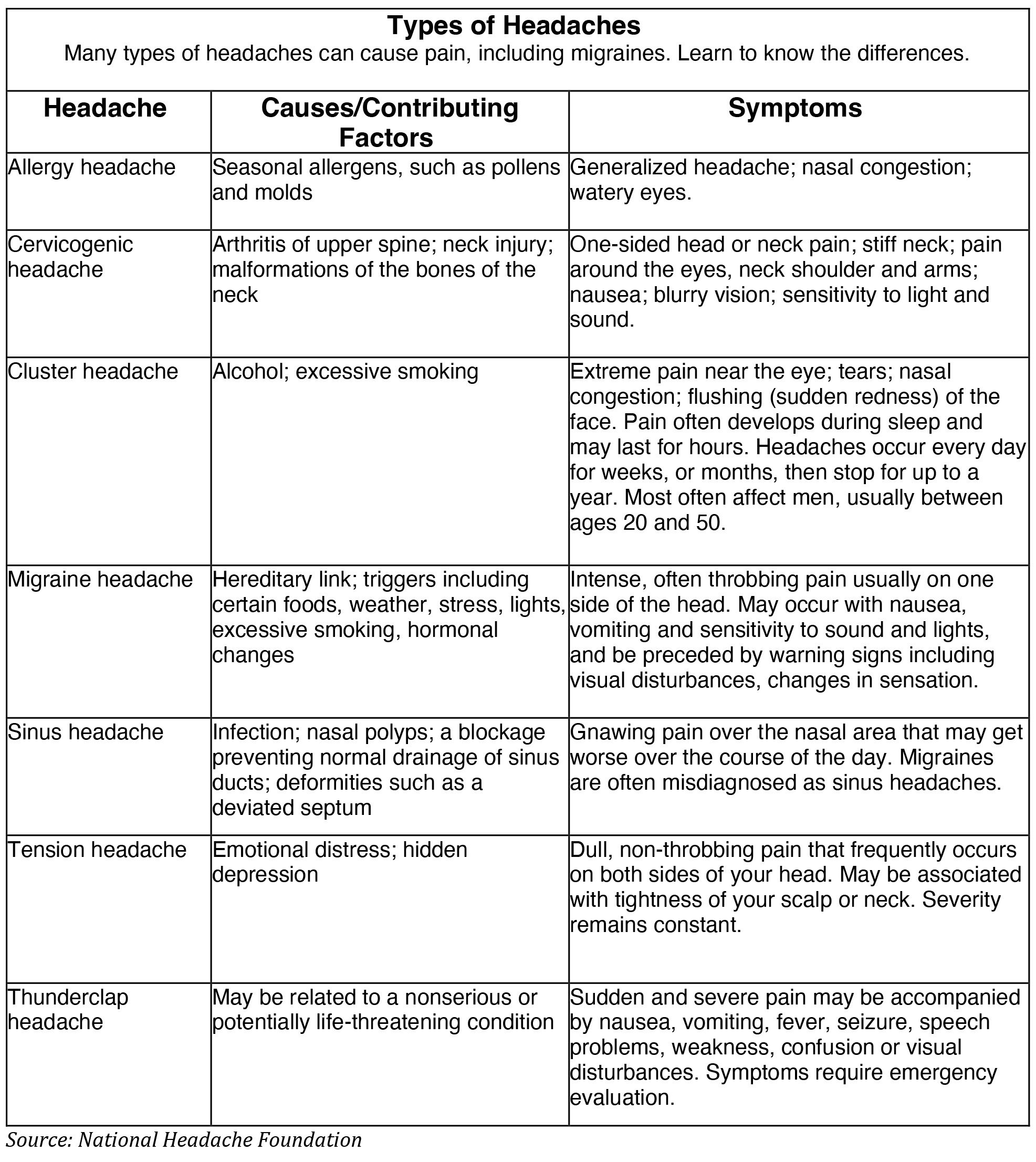Most of us get headaches now and then. They can be a pain—figuratively and literally—but they’re usually nothing serious. You take a couple aspirins, maybe get a little rest, and in no time you feel like yourself.
But if you have frequent headaches or your headaches interfere with daily life, you might have migraines. Migraines are uncomfortable, but they’re more than just a nuisance. They often come with other symptoms, and they can make it hard to function.
Fortunately, you can control migraine pain and take your life back. Our experts at Emory Healthcare are here to help.
How To Recognize a Migraine
People describe migraines in different ways—everything from feeling like their head is on fire to throbbing “brain pain.”
“These headaches are intense,” says Vinita Singh, MD, a board-certified anesthesiologist with Emory Healthcare who is also board-certified in pain medicine. “They’re incapacitating. They can stop you from doing anything at all.”
You might confuse this pain with a serious sinus headache or other condition. But if you know what to look for, it’s easier to recognize a migraine. And the sooner you do, the sooner you can get the help you need to feel better.
Other Migraine Symptoms
In some cases—although not all—a migraine is preceded by an aura. Auras are experiences such as visual disturbances, sensitivity to light or sound or nausea. Some people feel odd sensations or have problems with speech, as well.
If you can predict a headache is about to start, it’s often a sign of a migraine. Usually, these headaches come and go. They might last a few hours or even a few days, but the pain disappears, at least for a while.
“Another unique thing about migraines is they have triggers,” says Dr. Singh. The American Migraine Foundation explains a wide variety of factors can trigger a migraine, including:
- Certain smells
- Dehydration
- Foods, such as chocolate and cheese
- Stress
- Weather changes
Women may also have migraines triggered by their menstrual cycle.
What Causes a Migraine?
The pattern of your migraines can guide treatment decisions. So it’s helpful to keep track of symptoms, triggers and impacts in a pain diary. “If you don’t write things down,” says Dr. Singh, “it’s hard to remember the specifics.”
Each time you have a headache, make a note of:
- How you would describe your pain and its severity
- Potential triggers:
- What you ate before your headache
- Where you went that day
- How well you slept the night before
- How much water you drank
- What the weather was like
- Whether you were exposed to something out of the ordinary, like flashing lights or unusual smells
- What treatments you tried to improve your symptoms and whether they helped
- What activities your headache prevented you from doing
- When your headache started and how long it lasted
Be sure to let your doctor know if migraines run in your family, too. This information can help physicians evaluate your symptoms and plan your care.
Your Migraine-Free Days
If you can identify your migraine triggers, a key part of your treatment plan will be to avoid them. Another important factor your physician will consider is how many migraine-free days you have each month.
“If you have just a few headache days—let’s say you’re headache-free 25 days a month—then we would just treat your headaches when they occur,” says Dr. Singh. Medications such as sumatriptan may help, but you can’t use them too often. If you take certain medicines more than 10 days a month, they can actually cause more frequent headaches or make them worse.
“If you have a headache every other day, you’re in a different category than someone who only has four of five headaches a month,” Dr. Singh says. The focus then turns to prevention.
Preventive Treatments for Migraines
Many treatments may help prevent migraines. Doctors typically start with the most conservative therapies first. If they don’t provide adequate relief, other options are considered.
Vitamins and supplements. Research shows vitamins such as riboflavin and supplements like magnesium, butterbur and feverfew may help prevent migraines. You can learn more about these from the National Institutes of Health’s Office of Dietary Supplements, but it’s important to talk with your primary care provider before taking herbs or supplements on your own.
Medications. Nerve stabilizers, such as gabapentin and topiramate, help calm abnormal excitement in your brain. Calcitonin gene-related peptide (CGRP) inhibitors include several newer drugs specifically developed to prevent migraines.
Nerve blocks. Doctors inject medication into certain nerves to block pain signals.
Botox®. Botox is a form of botulism toxin. Doctors use it to treat frequent migraines, but usually only as a last resort. When injected near nerve endings, Botox interferes with pain signals.
Trust the Emory Healthcare Team
When you come to Emory Healthcare for migraine pain, our neurologists do a thorough assessment to evaluate your headaches and give you a quick and accurate diagnosis. Then, they develop a personalized treatment plan focused on non-opioid, non-habit-forming medications. We aim to safely minimize the impact your migraines have so you can enjoy a better quality of life.
As the region’s only comprehensive academic health system, Emory Healthcare experts from many specialties work together to help you find relief. They include neurologists, pain medicine specialists and even, if necessary, skilled surgeons. In some cases, surgeons can decompress the nerves which cause your pain.
While treatments ease your pain today, researchers at Emory are actively working to develop better treatments for tomorrow. “Chronic conditions like migraine are definitely among our priorities,” says Dr. Singh. In short, at Emory Healthcare, we’re here to help you feel better.
Schedule an appointment online. It’s easier than ever to connect with us and find the care you need close to home.




